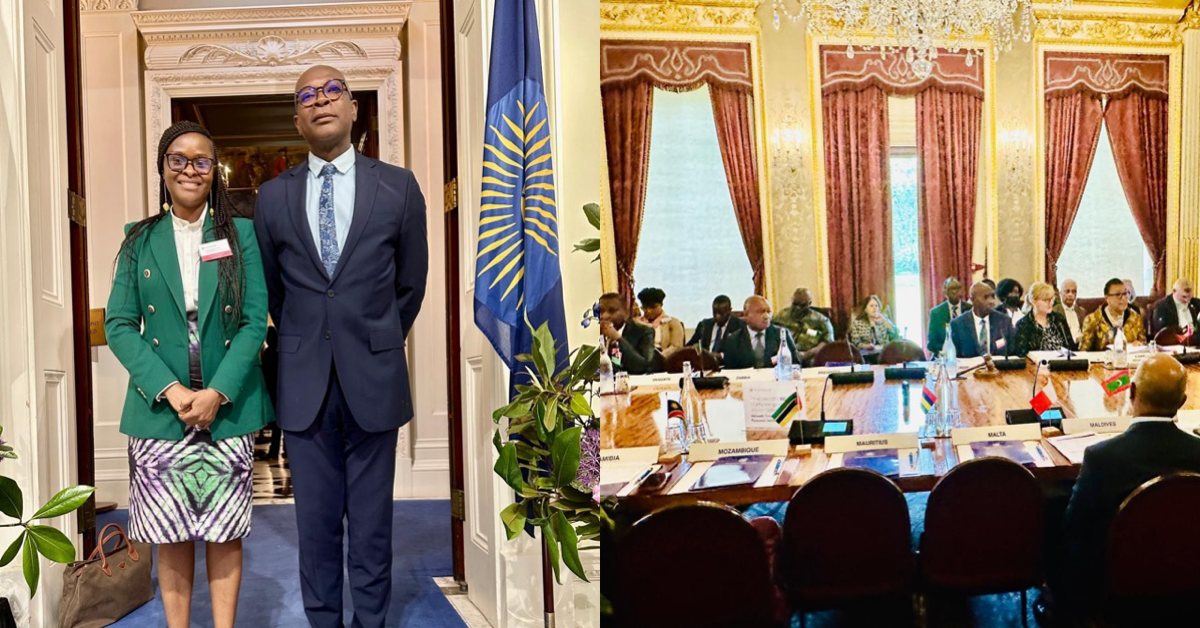The two-day 22nd Conference of Commonwealth Education Ministers (22CCEM) held on May 16-17, 2024, at Marlborough House, London, has been celebrated as a significant success, largely due to the exceptional contributions from participants, including the dynamic duo leading Sierra Leone’s educational transformation.
Under the visionary leadership of President Julius Maada Bio, the country’s Minister of Basic & Senior Secondary Education, Conrad Sackey, and Minister of Technical & Higher Education, Dr. Haja Ramatulai Wurie, played pivotal roles in the strategic discussions aimed at enhancing education across the 156 Commonwealth member nations.
Themed “Driving Resilience, Equity and Skills for an Inclusive Future,” the conference sought to advance and implement commitments made at the 21CCEM in Nairobi, Kenya, in April 2022. The ambitious Action Plan aimed at ensuring inclusive quality education for all by 2030 was a central focus, with discussions revolving around prioritizing education, enhancing accessibility, and addressing challenges hindering educational objectives.
Key areas included crafting viable mechanisms for resource mobilization, greening education initiatives, facilitating local research collaborations, and exploring the role of technology and innovation through collaboration and networking. The overarching goal was to design potent tools to help Commonwealth nations prioritize Human Capital Development and address skill gaps using platforms like Artificial Intelligence technology and digital transformation.
Dr. Haja Ramatulai Wurie, Sierra Leone’s Minister of Technical and Higher Education, was a key participant in the deliberations. She spoke eloquently about her Ministry’s efforts to transform Technical and Vocational Education and Training (TVET) at the policy level, with plans to change the perception of TVET by converting Government Technical Institutes into Community Colleges linked to universities.
This strategy aims to allow resource sharing and incorporate a training pathway from TVET to university degree programs via a harmonized National Qualification Framework. She also discussed plans to link the outputs of an ongoing labor market survey in Sierra Leone with curriculum reviews to ensure training is demand-led, promoting public-private partnerships, and increasing employability. Dr. Wurie emphasized fostering entrepreneurship skills during training to help trainees become self-sufficient and potential employers. She also highlighted plans to introduce sustainable and innovative financing methods for the sector.
Meanwhile, in a nearby hall, Conrad Sackey, Sierra Leone’s Minister of Basic and Senior Secondary Education, chaired a session focused on “Foundational Skills for Inclusive and Equitable Learning” starting from early childhood. This session explored the use of literacy, numeracy, and socioemotional skills to unlock the full potential of children, examine challenges, and reimagine education systems to meet evolving needs. Mr. Sackey, with his solid background in education and educational development, chaired this roundtable session with commendable skill and expertise.
The contributions of both ministers were highly regarded, and their ideas were seen as vital in shaping the future of education within the Commonwealth. Their involvement underscored Sierra Leone’s commitment to education and its determination to play a significant role in global educational development.




 Post a comment
Post a comment









